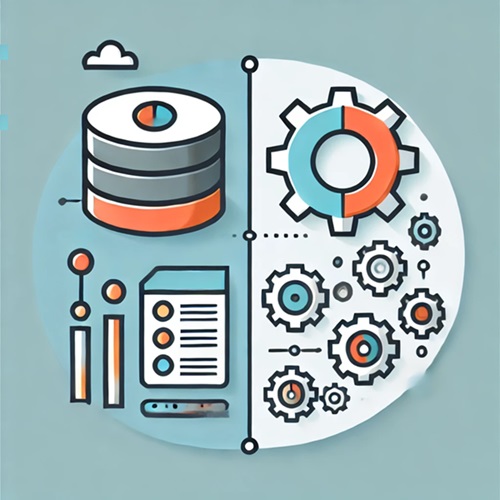Data Fundamentals for Sales Compensation and Performance Management

Bridging the Gap for the Next Generation of Reporting
Organizations are under constant pressure to make data-driven decisions, especially when it comes to sales compensation and performance management. Despite the recurring nature of analyses required in these areas, many companies struggle to produce timely and accurate reports. The crux of the issue often lies in disconnected data infrastructures and unbounded fundamental practices that support efficient reporting and analysis.
Let’s explores the challenges organizations face in managing sales compensation data, the importance of establishing robust data fundamentals, and how we here at ICQuirks are paving the way for the next generation of reporting.
The Recurring Challenge in Sales Compensation Analysis
Professionals who have worked across multiple organizations frequently encounter the same analytical requirements:
-
- Tracking Sales Performance: Monitoring individual and team sales metrics against targets.
- Calculating Commissions and Bonuses: Ensuring accurate and timely compensation based on performance.
- Forecasting and Budgeting: Predicting future sales and compensation expenses.
- Compliance and Audit: Maintaining records that meet regulatory standards.
Despite the repetitive nature of these tasks, many organizations find themselves reinventing the wheel each time, leading to delays and inefficiencies.

Why the Struggle?
Several factors contribute to the ongoing struggle:
| Disparate Data Sources | Lack of Standardization | Manual Processes | Insufficient Infrastructure |
| Sales data often resides in multiple systems – CRM platforms, ERP systems, spreadsheets which are not integrated | Inconsistent data formats and definitions hinder effective analysis | Reliance on manual data entry and consolidation increases the risk of errors | Outdated or lack of IT systems failing to support the required analytical capabilities |
Establishing Data Fundamentals
To overcome these challenges, organizations must focus on building strong data fundamentals:
- Data Integration
Integrate all relevant data sources into a centralized repository. This could involve:
-
- Implementing a data warehouse or data lake.
- Using ETL (Extract, Transform, Load) processes to consolidate data.
- Leveraging APIs to enable real-time data syncing.
- Data Standardization
Establish consistent data definitions and formats:
-
- Create a data dictionary that outlines the meaning of each data element.
- Standardize units of measurement, currencies, and date formats.
- Implement data validation rules to maintain data quality.
- Automation
Automate repetitive tasks:
-
- Use software tools for automatic data extraction and report generation.
- Implement workflows that trigger alerts for data anomalies or performance thresholds.
- Analytics and Reporting Tools
Invest in advanced analytics and reporting platforms:
-
- Utilize business intelligence (BI) tools for interactive dashboards.
- Employ predictive analytics for forecasting and trend analysis.
- Governance and Compliance
Ensure data practices meet legal and regulatory requirements:
-
- Implement access controls and audit trails.
- Regularly review and update compliance protocols.
The Role of ICQuirks in Shaping the Future
ICQuirks has been proactive on addressing these challenges. Recognizing the recurring nature of sales compensation analysis and the common pitfalls.
-
- Building Robust Infrastructure: Developing scalable systems that integrate multiple data sources seamlessly.
- Focusing on Fundamentals: Prioritizing data standardization and quality from the ground up.
- Preparing for the Future: Investing in next-generation reporting tools that leverage artificial intelligence and machine learning for deeper insights.
Continued Learning and Future Expectations
As businesses continue to evolve, so do the expectations for data management:
-
- Real-Time Analytics: The demand for up-to-the-minute insights will drive the adoption of real-time data processing.
- Personalization: Customized dashboards and reports tailored to individual roles and preferences.
- Advanced Predictive Capabilities: Leveraging AI to not just report the past but predict future trends and opportunities.
- Enhanced Collaboration: Cloud-based platforms that facilitate better collaboration among teams, regardless of location.
Final Thoughts
The challenges in producing timely and accurate sales compensation and performance reports are not insurmountable. By establishing strong data fundamentals and investing in the right infrastructure and tools, organizations can transform their reporting capabilities. Focusing on the basics while preparing for future advancements can position an organization at the forefront of data-driven decision-making.
In a world where data is the new currency, mastering its fundamentals is not just an operational necessity but a strategic imperative.
